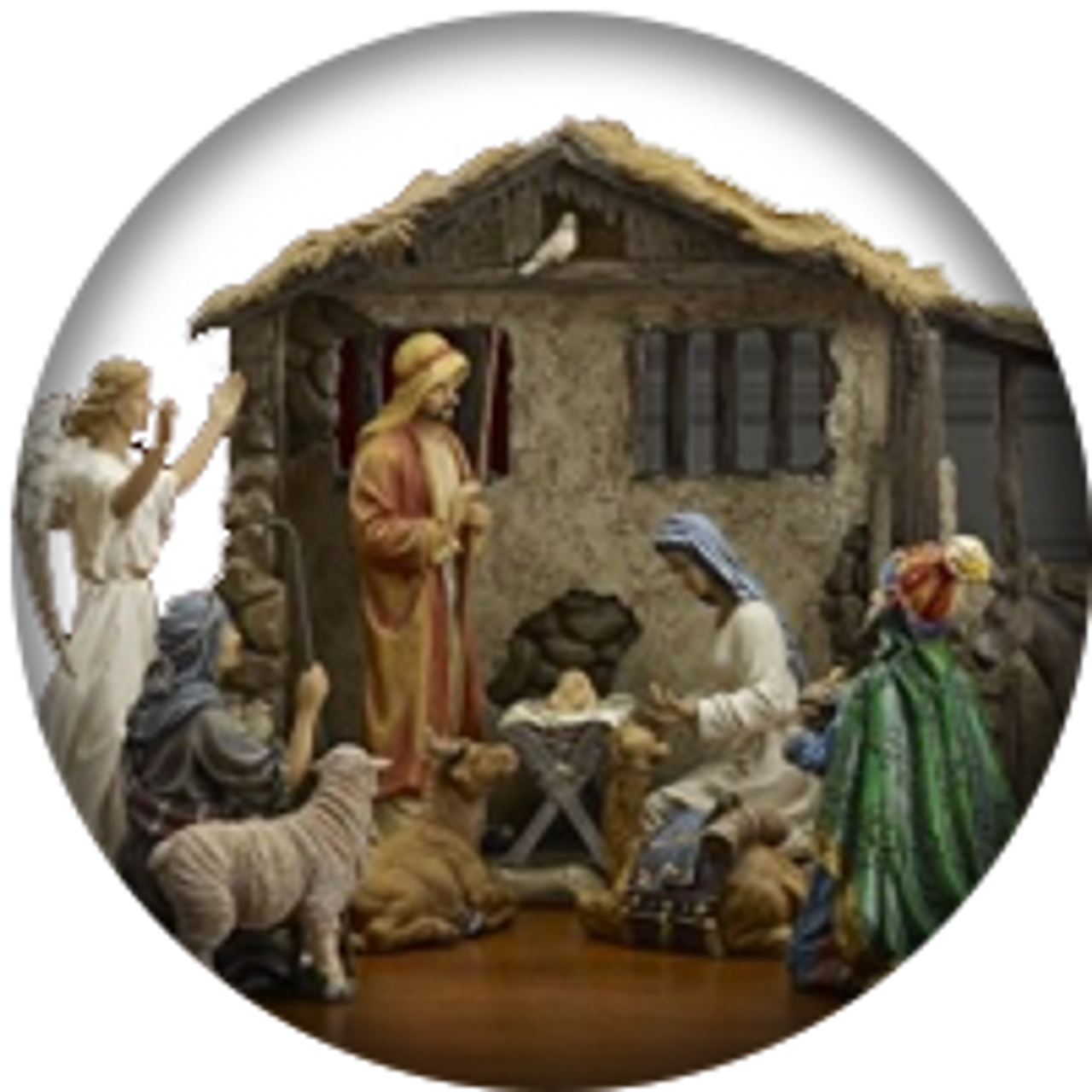THE PEACE PRAYER AND ST. FRANCIS OF ASSISI 1181-1226
Kathy Boh on 3rd Oct 2018
THE PEACE PRAYER
AND ST. FRANCIS OF ASSISI
1181-1226
EARLY LIFE
Few saints have enjoyed such immense universal love and respect through the centuries as St. Francis of Assisi. Many have interpreted his life in relation to beloved myths and legends. But it is the reality of the man, himself—the real historical figure—that is impressive. We seek to understand some differences in Francis’ life, but not over-simplify his complexities. While he lived in an era of time that seems, outwardly, quite different from our own, it may be more similar than we think.
Francis (meaning, the “Frenchman”…it is supposed his mother was French) spent his childhood in Assisi—a small town in north, central Italy. It was his home of origin, and the established residence of Francis and his brothers. As an older youth, Francis was regaling in the knightly romantic and courtly military literature of the times. His was a time when there were many small civil wars over power and property.
He was an outgoing and generous leader of the youth in the area, engaged in wild reveling and many escapades, but he ended up spending almost a year in prison as a result of his soldiering in a small civil war in his locale. His health was never the same after contracting several diseases while in prison.
Around this time, he expressed strong awareness that his life had both noteworthy purpose and some future renown…however unaware he was of the religious overtones, rather than the secular notoriety of a grand knight that he had in mind. Two dreams helped steer him on his way. In the first, he was a knight in a castle. In the second, a voice asked him, “‘Who can do more good, the master or the servant?’”
The voice then instructed him to return home and interpret the first dream in a different way… The result was this: the weapons he was given, as a knight, would end up becoming analogous to true spiritual ones (as mentioned in Ephesians 6). He would be a knight in the King (of king)’s service. He would let God pull him from a degraded life, and help others cooperate with God’s move in a culture which was only superficially Christian.
SPIRITUAL REFORM AND CONVERSION
Francis lived in a time when there was an emerging awareness in some areas in Europe that titles and power, wealth and conquest did not constitute true “righteousness” and genuine, Godly respectability. Increasingly, there were those—though in the minority—who wanted more than the civil-war-fighting between old nobility (from the feudal systems) and nouveau riche... power struggles in which even clergy were involved.
Some individuals began seeking true spiritual reform, where God’s favor was not automatically defined in monetary terms and earthly success. Some people were hungry for a life in tune with God, where the beatitudes and the gospel made a difference.
Sometime early in the 12th century, Francis experienced what some have called a “conversion”. Others have noted that, rather than a single, noteworthy event, it was Francis’ responses to many duplicitous circumstances that led to a solid change of heart. His leadership—by example, not preaching—gradually turned to a holier way, rather than exemplifying a path of enthusiastic excess among his friends.
According to many biographers, it took Francis a few years, continually wrestling with the changes to which he was being called. He still cavorted with his companions, but drew aside more and more to pray and to show mercy toward the ‘least of these’ in his society—the lepers and other disenfranchised people.
Eventually his choices were sure and strong, leading others, too, to reject the avaricious values of his culture’s worldly views, and turning, instead, to a new King and Lord. Living the gospel became a deep and heartfelt commitment to him.
"POVERELLO"
He was known as the “Poverello”, the “Little Poor One”. The origin of this name lay in the fact that he sought more to identify with everyday people, although he was born the son of a well-known mercantile businessman. Although he did not show signs of interest in entering any of the religious orders that were common in the church’s institutional life at the time, he still openly rejected his family’s lifestyle (that he, himself, had enjoyed and benefited from for over 20 years). When his father began a public tirade against him for giving away some of his goods, Francis demonstrated his renunciation (of his family’s materialistic values) by stripping off all his clothes and giving them to his father.
Family and family connections mattered so much in his 12th-13thcentury feudal/ mercantile culture that, when his father disowned him, he chose a poor, despised man to accompany him to bless him with the sign of the cross whenever his father publicly cursed him as he walked the streets in Assisi. (Certainly, the poorly dressed, rebellious son was not helping the sale of the fine cloth and clothing his father was selling…) When it became obvious that Francis was seeking a life consecrated to God, the town consuls sent his father to the bishop.
Francis did not try to gain followers, but stated that the Lord’s moves brought him his brothers—his “community”. Francis was discovering the truth in scriptures, and felt God leading him. Eventually, he and his brothers began wearing the simple tunic with a rope belt, with a hood (“capuche”, worn by rural workers), and mantle when needed for additional warmth. The choice of his attire was very deliberate.
Clothing clearly marked the social standing of the people in his time—even more than it does now. He carefully chose garb that would identify him as neither “religious”, nor as socially prominent. He desired to identify with those of no social standing, and obey scriptures in regard to clothing. (see Matt.19:21, 16:24; Luke 9:3, 9:23).
LATER COMMUNITY LIFE
As we fast-forward to the year 1220, we find that Francis has returned from a long trip to the East, where he became quite sick. He found that several issues had developed among his community while he was away. Francis eventually determined that day-to-day authority could best be carried out under more structured leadership, while he would continue to be the strong, spiritual influence he desired to be. He was glad to be a man of simple example and truly good action—sometimes with shock value, as when he appeared as a beggar asking alms before his brothers seated at a feast-day table.
The lifestyle and culture of the early years of the Friars Minor were based on a series of scriptures as a simple, but effective guide for life. In humble but profound terms, Francis sought to create a society of those willing to live in ways true to the Gospel life of Jesus, and willing to demonstrate life-giving, alternative answers to many of the traditions, customs, and patterns that he saw around him.
On a more personal note:
Originally, it was St. Francis who first captured my love and attention with his “peace” prayer*…I remember the reality of being strongly impressed (in kindergarten or first grade, although I would not have been able to understand it or express it all the way I can now)… impressed by my first hearing of those succinct but potent desires that became a prayer from Francis to God.
We sometimes forget or fail to realize how impressionable children are… and how young they can be when they find purpose, causes, dreams and devotions in life. I remember every line making so much sense, and almost imprinting themselves on my memory. I “caught” the things that really mattered.
As I learned about St. Francis, I saw how very genuine and effective Francis’ relationship with and work for God must have been. (There was one other saint who affected me so strongly, as I shared in another blog... That was in fourth grade, and the saint was St. John Vianney.) Apparently, early grade school is not too young to be impressed by such things… or to recall decades later. God is real and He truly matters in our life and formation.
PRAYER, WORK AND SERVICE
Francis endeavored—as much as possible—to have members of the community live on equal footing, while minimizing power hierarchies. He believed in the humble work of manual labor, and was glad to have opportunities to serve the needy outside of the friars’ community.
From his early experiences with his brothers, building and living in the “cowshed” (a rustic, transformed barn/ shed)—in simplicity, hard work, and poverty—he sought to dismantle many assumptions about life, and stand apart from many norms.
To Francis, poverty was not just a “quaint” religious topic, but a long-held, uncompromising part of reality. It meant wholeheartedly depending on God for all things. That means that he (and we) could ask and depend on God to provide all kinds of needs— not just financial. He truly believed that God clothed the lilies of the field, and took care of the sparrows, as Jesus said. Consequently…
He led a life of both strong service and utter prayerful intimacy with his beloved God. His experiences led him to stage the “stable scene” nativity, which we now have come to enjoy at Christmastime. St. Francis is known for his love and appreciation of God’s creation and His creatures. For this reason he has attracted many animal lovers, and he is a patron saint of the “environment”.
LOVE OF GOD AND LOVE OF OTHERS
Rules in religious orders can change as adaptations by authority structures within the Church would determine. Francis hoped to keep things as simple and different for his friars as possible—different from both other religious orders of the day, and from the contemporary secular lifestyles of his era. He saw real power and effectiveness in the simplicity and power of the actions taken—and the words spoken—by Jesus Himself.
Frankly put, Francis moved resolutely to stand for everything that spelled out love of God and love of neighbor—without qualifications. His definitions and behaviors regarding love were as complete and unmitigated as he could follow. His measure was never the ordinary social norms or excuses which the rest of us usually use and find in regard to acting out the gospel—no matter what culture or era in which we find ourselves.
Francis was continually purposeful and unrestricted in pursuing his love toward God, and deliberately unselfish in finding ways to express love toward people who were more difficult and less satisfying to love in the world around him.
The details of Francis’ lifestyle may be impossible for most of us to aspire to, yet the determined, hard-sought devotion to the love Jesus describes in the Gospels is not. It is within reach for any of us.
This saint (who knew almost the entire gospel of John by heart just from reading it so much) clung passionately and uncompromisingly to both God and to His revealed scriptures in the Bible. Francis, indeed, came to know God personally and love Him with an undivided heart.
HERE AND NOW
Although our times and our challenges may be different from that day and culture, like Francis, we can respond to the mercifully understanding God who sees and knows every detail and difficulty of our individual lives... and of our own troubled culture and modern age.
We, too, can find ways in which God would lead us to truly live a new life—“outside the box” of our increasingly unGodly culture—to find new purpose, new love, and great peace.
ST. FRANCIS OF ASSISI’S PEACE PRAYER
Lord, make me an instrument of Your peace.
Where there is hatred, let me sow love.
Where there is injury, pardon.
Where there is doubt, faith.
Where there is despair, hope.
Where there is darkness, light.
And where there is sadness, joy.
O Divine Master,
Grant that I may not so much seek
to be consoled, as to console;
to be understood, as to understand;
to be loved as to love.
For it is in giving, that we receive.
It is in pardoning, that we are pardoned.
It is in dying that we are born to eternal life.
(adapted from our blog published on October 1, 2014
on trinitychurchsupply.com/blog)










